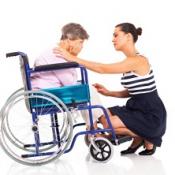 As discussed in Part I of this series, surviving a traumatic event often results in negative and harsh altered beliefs about yourself. A traumatic event can also impact your sense of worth, meaning, and trust.
As discussed in Part I of this series, surviving a traumatic event often results in negative and harsh altered beliefs about yourself. A traumatic event can also impact your sense of worth, meaning, and trust.
After a traumatic experience, you may believe that you are no longer worth anything: that you do not deserve things, do not have a right to have your needs met, or deserve to be happy or content. This erosion of your sense of worth and conviction that you deserve and have a right to things like safety and kindness impacts real-life decisions you make. For example, if you no longer believe that you have a right to stand up for yourself, then you might not say anything when a boss inappropriately berates you. Learning how to reclaim your rights and increasing your conviction in your inherent worth are truly difficult steps in the healing process. Reading the United Nations’ Universal Declaration of Human Rights might help you begin this recalibration process.
Traumatic experiences also damage your sense of self by shattering the beliefs, morals, philosophies, and ethics that gave your life meaning. The beliefs that once made sense, like good things happening to good people and bad things happening to bad people, no longer fit with the real-world experiences you went through. Due to this disconnect between beliefs and experiences, you may feel that life is now bereft of any moral or ethical bearings, as if you have awoken in a counterfeit world.
This disconnect can also manifest itself as questioning your spiritual or religious beliefs. This can result in decisions that your beliefs are no longer accurate, or in a new or deeper sense of spirituality or religious devotion. While any of these reactions are painful to go through and difficult for friends and loved ones to understand, each of these reactions is an understandable and normal way to make sense of the trauma.
Intertwined with spiritual beliefs are the beliefs that each of us carry about the orderly nature of the world. Whether or not we acknowledge it, most of us function in the world presuming that there are cause-and-effect relationships at work, like “I am nice to the cashier at the grocery store and she bags my produce in a gentle manner.” Posttrauma, the orderliness of the world is called into question, because trauma is not part of any casual relationship that you, the victim, initiated or willingly participated in. The tarnishing or breaking of this belief can lead you to think that there is no order whatsoever in the world and that none of your actions make any sense. However, as your healing progresses, you will grow to a place where you can balance the truth in both of these tenants: sometimes the world is an orderly place, and sometimes there is no rhyme or reason.
A final aspect of self that is altered through a traumatic event is your sense of community. All of us are social creatures—even those of us who are on the shyer end—and some of our sense of self comes from the social relationships we have. Because a traumatic event distorts our belief that, on the whole, people are trustworthy, and because you may have experienced secondary wounding experiences (painful, possibly even traumatizing experiences following the trauma inflicted by people who are trying to help or who are in an official helping role—for example, a police officer blaming a woman for the sexual assault she experienced) you may find yourself questioning the trustworthiness of people in general, which in turn negatively impacts your ability to be in healthy and nourishing relationships.
A deeper discussion of how trauma interferes with healthy relationships will be the focus of the next few articles, but in the meantime know that you are not damaged, toxic, or beyond all hope. If you engage in the healing process and find your way to grow through the traumatic events of your past, you can and will reclaim the healthy and whole relationship with yourself that you have an inherent right to. Know that there are trained professionals who are ready and willing to help guide you through this process.

The preceding article was solely written by the author named above. Any views and opinions expressed are not necessarily shared by GoodTherapy.org. Questions or concerns about the preceding article can be directed to the author or posted as a comment below.

 Trauma's Impact on Relationships: Part I
Trauma's Impact on Relationships: Part I The Challenge Du Jour: Recognizing Your Resilience
The Challenge Du Jour: Recognizing Your Resilience Women and Posttraumatic Stress
Women and Posttraumatic Stress

